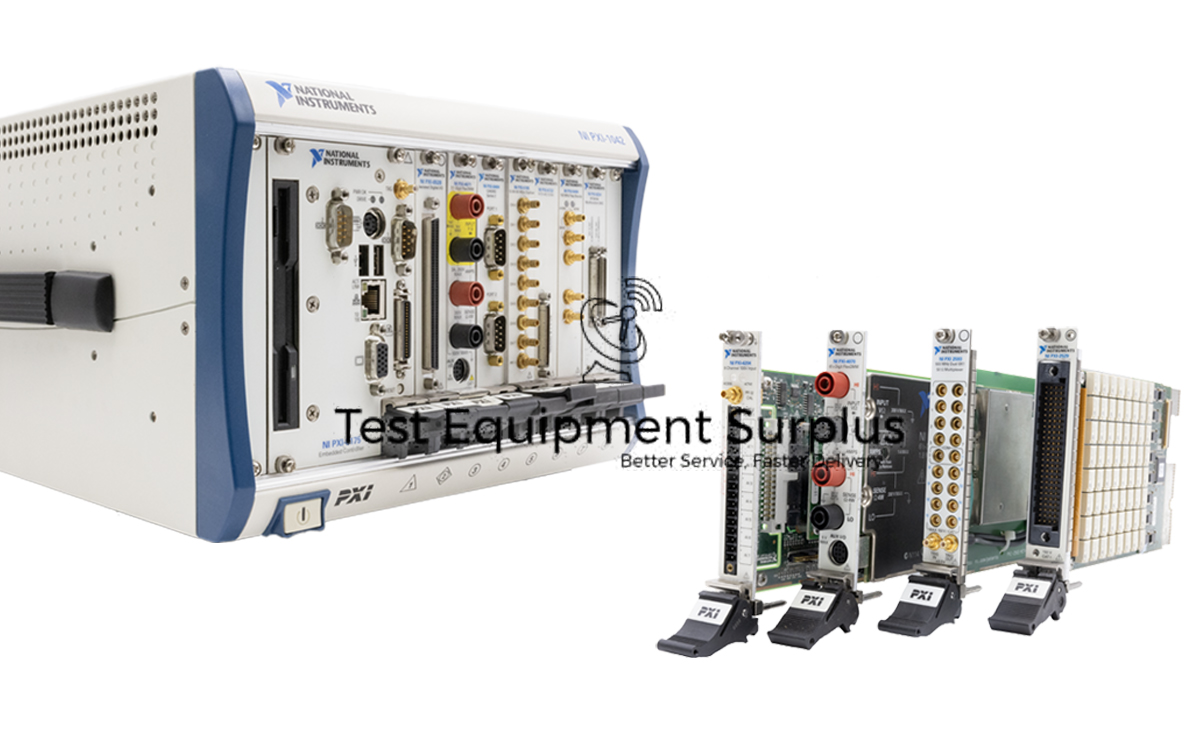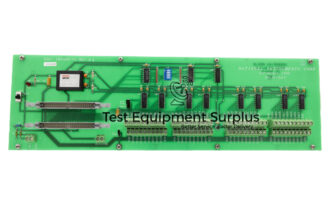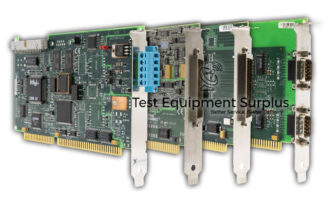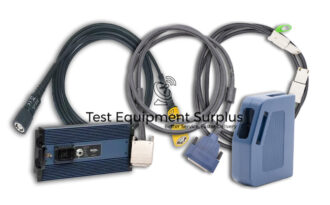Description
The National Instruments PXIe-1078 PXI Chassis is a versatile and robust AC chassis that includes 9 slots in total, with a 4-slot wide system controller slot, 3 PXI Express slots, and 5 PXI hybrid slots for accommodating both PXI and PXI Express modules.
The chassis ensures high-speed performance with a backplane capable of 250 MB/s single direction per PCI Express link and includes a PCIe to PCI translation bridge with one x1 PCIe link.
Designed for precision, the PXIe-1078 offers a reference clock with an accuracy of +/-25 ppm and an impressively low slot to slot skew of 100 ps.
Weighing 16.6 lb and measuring 6.97 x 14 x 8.43 inches in dimension, this chassis is both compact and portable. It also requires PXI Platform Services 2.0 or higher for optimal operation.
Additionally, the AUTO/HIGH fan speed selector is engineered for efficient cooling and noise reduction, ensuring the system operates at optimal temperatures while managing acoustic emissions.
| Specification | Detail |
|---|---|
| Manufacturer | National Instruments |
| Model | PXIe-1078 PXI Chassis |
| Part Numbers | 763068-01, 781622-01, 781482-01, 781634-01, 763000-01, 199485F-01L |
| Chassis Type | AC Chassis |
| Slot Configuration | 9 slots total: 4-slot wide system controller slot, 3 PXI Express slots, 5 PXI hybrid slots |
| Backplane Speed | 250 MB/s single direction per PCI Express link |
| PCIe to PCI Translation Bridge | One x1 PCIe link |
| Compatibility | PXI and PXI Express modules |
| Reference Clock Accuracy | +/-25 ppm |
| Slot to Slot Skew | 100 ps |
| Weight | 16.6 lb |
| Dimensions (H x W x D) | 6.97 x 14 x 8.43 in |
| Software Requirement | PXI Platform Services 2.0 or higher |
| Fan Speed Selector | AUTO/HIGH for cooling and acoustic management |
Question 1: What are the specifications and features of the National Instruments PXIe-1078 PXI Chassis in terms of slot configuration, backplane speed, clock accuracy, size, weight, required PXI Platform Services version, and fan speed selector?
Answer 1: The National Instruments PXIe-1078 PXI Chassis offers a maximum data transfer rate of 250 MB/s single direction per PCI Express link, which enables high-speed performance crucial for applications requiring fast data throughput and reduced data transfer times.
Question 2: What are the precision specifications of the National Instruments PXIe-1078 PXI Chassis in terms of reference clock accuracy and slot-to-slot skew?
Answer 2: The National Instruments PXIe-1078 PXI Chassis features a slot configuration of 9 total slots including a 4-slot wide system controller slot, 3 PXI Express slots, and 5 PXI hybrid slots, a backplane with a speed of 250 MB/s per PCI Express link, a reference clock with an accuracy of +/-25 ppm, dimensions of 6.97 x 14 x 8.43 inches, a weight of 16.6 lb, requires
Question 3: What is the backplane speed per PCI Express link in the National Instruments PXIe-1078 PXI Chassis, and what is the purpose of the included PCIe to PCI translation bridge?
Answer 3: The National Instruments PXIe-1078 PXI Chassis requires PXI Platform Services 2.0 or higher for optimal operation and features 9 slots including a 4-slot system controller slot, 3 PXI Express slots, and 5 hybrid slots, with a backplane capable of 250 MB/s per PCI Express link, a PCIe to PCI translation bridge, a reference clock accuracy of +/-25 ppm, a slot to slot skew of 100 ps, an AUTO/HIGH fan
Question 4: What are the key specifications and requirements for optimal operation of the National Instruments PXIe-1078 PXI Chassis?
Answer 4: The National Instruments PXIe-1078 PXI Chassis boasts a reference clock with an accuracy of +/-25 ppm and has a remarkably low slot-to-slot skew of 100 ps.
Question 5: What is the maximum data transfer rate per PCI Express link in the National Instruments PXIe-1078 PXI Chassis, and how does this affect its performance in high-speed applications?
Answer 5: The backplane speed per PCI Express link in the National Instruments PXIe-1078 PXI Chassis is 250 MB/s, and the included PCIe to PCI translation bridge is designed to facilitate communication between newer PCI Express modules and legacy PCI modules within the system.





